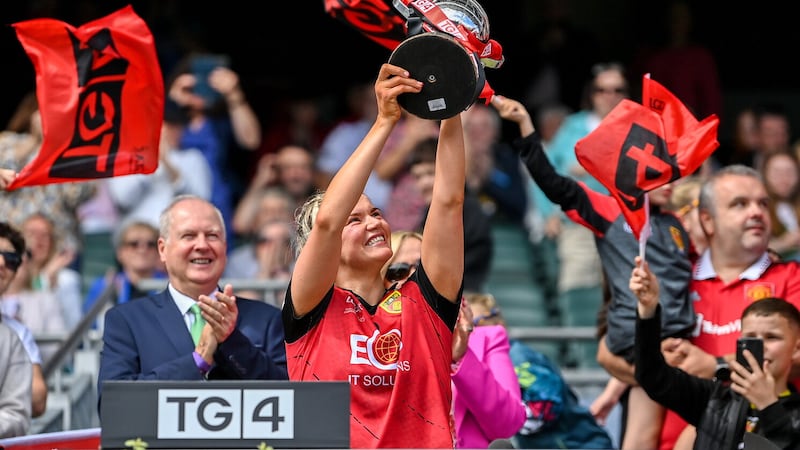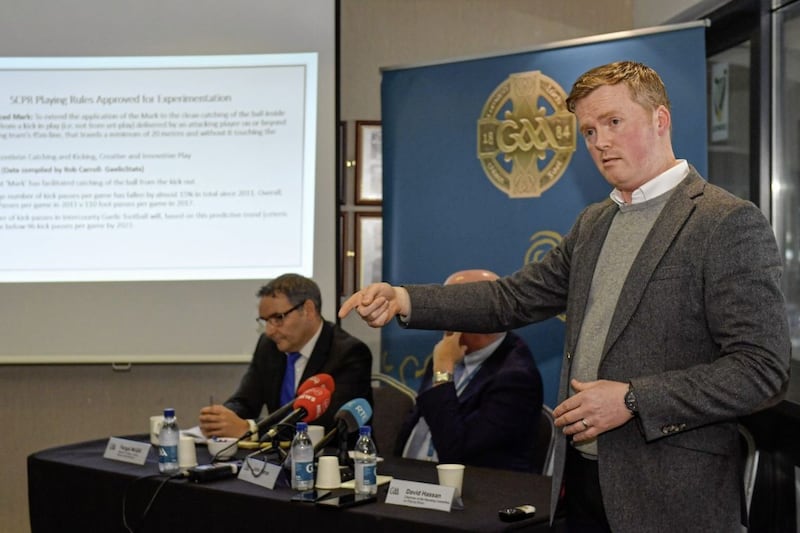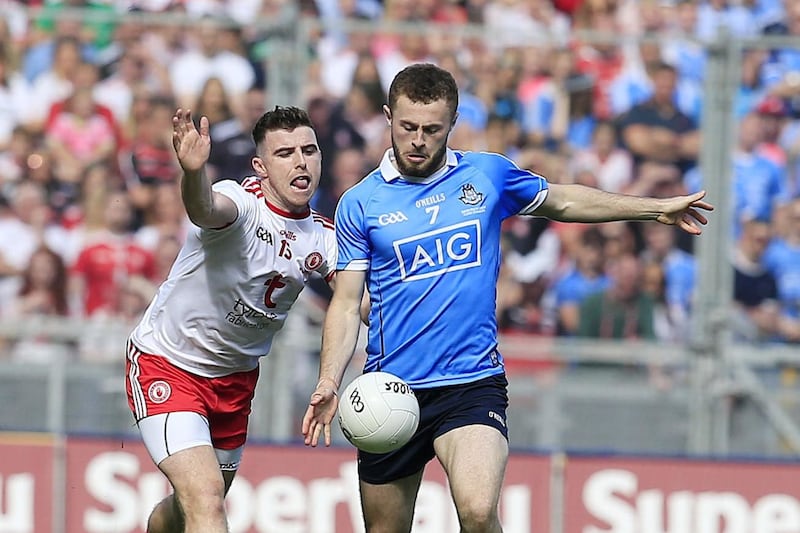THE slow death of kick-passing in Gaelic Football made the introduction of the new hand-pass rule necessary, claimed David Hassan at Croke Park yesterday.
The experimental new law limiting the number of consecutive hand-passes a team can make to three is arguably the most contentious of the five changes to be trialled in next year’s NFL which will also include having sideline balls kicked forward, the introduction of an attacking mark, the implementation of a sin bin and moving kick-outs to the 20-metre line.
The rules have met with stiff opposition from some managers and the Gaelic Players’ Association but Derry native Hassan, chairman of the GAA’s Standing Committee on Playing Rules, presented detailed statistical evidence to support his belief that moves to "incentivise the kicking of the ball" were needed, are workable and should be welcomed.
With a few notable exceptions, the old adage of ‘let the ball do the work’ has been consigned to the waste bin in most dressingrooms according to Hassan’s data.
He explained that last season there were 100 more hand-passes per game than in 2011 while stats from 38 inter-county games in 2018 showed that, on average, there were more than three hand-passes for every kick pass.

“The hand-pass is almost becoming a reflex response to receiving the ball,” Hassan claimed.
“In other words, as soon as I receive the ball I must hand-pass it.
“The (new) rule will encourage people to think more seriously about how the use that form of passing.
“I wouldn't comment on individual teams because that's how teams choose to play themselves but I would make the point that one of the benefits, maybe unintended consequence of the restriction, is that it does encourage people to think more about their use of the pass which could either be a hand pass or a kick-pass.
“Obviously, by virtue of restricting the hand-pass we will see an increase in kicking of the ball.
“Again, these things are subject to discussion but if the basis of Gaelic football is catching and kicking then if we're moving in that direction that's to be welcomed.”
While players have to adapt to the new rules, referees have to enforce them and there are concerns that the new legislation will heap too much responsibility on match officials, particularly at club level. However, Hassan remains confident that the new laws are workable.
“In the trial games we had situations where referees were able to handle it without any great difficulty,” he said.
“People will have individual opinions, but I work in a university and I say to my students: ‘You can have your own opinions but you can’t have your own facts’ and referees (in the trial games) were able to handle the situation without any great difficulty.”
The GPA will meet with GAA President John Horan to voice their displeasure with the experimental rules but players are thought to be in favour of the new ‘offensive mark’. With the midfield mark from kick-outs already in place, Hassan rejected the suggestion that Gaelic Football was turning into a version of Aussie Rules.
“If a forward catches the ball cleanly then they can, under these experimental rules, have 15 seconds to get themselves together and have a shot at goal. It will be interesting to see how many times that will happen,” he explained.
“When we put it to the players they really liked it.
“A key element of where we’re trying to get to is to incentivise the kicking of the ball over slightly longer distances. The information we were receiving was that that was being almost written out of the game.
“We had to look at a way in which we could incentivise the longer kicking of the ball particularly into the forward line and a situation which could be applied under all circumstances.”







